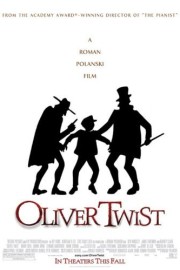Oliver Twist
As an individual, director Roman Polanski presents a unique challenge to film fans. How do you separate the art- films like “Rosemary’s Baby” and “Chinatown”- from the history; namely, a conviction for having sex with an underage model that turned him into a European exile, unable to enter not just the US- where he would serve jailtime for probably the rest of his life (he’s now 72)- but also the UK, who might expedite him there? On the one hand, his conviction for having sex with a minor is inexcusable, and his nearly 30 years of exile in Europe to avoid prison shows a contempt for the law and lack of responsibility that is just as hard to excuse. On the other hand, we might have been deprived of one of the boldest storytellers in movie history; granted, I could live without his odd 1992 sex drama “Bitter Moon” (though it is a guilty pleasure of sorts), but we may have missed out on the surreal horror of his fascinating “The Ninth Gate” (with Johnny Depp) and the personal catharsis of his past two movies, the Holocaust survival story “The Pianist” (which earned him a deserved Oscar), and now the Charles Dickens’ adaptation “Oliver Twist.”
Seeing it recently, though, I probably could have gone without his “Twist.” The film has many qualities in its’ favor, mind you. The lavish production design by Allan Starski (“The Pianist,” “Schindler’s List”) is intricate in its’ attention to detail in depicting 19th Century London, as you would expect from an Oscar winner. The music by Rachel Portman (an Oscar-winner herself for “Emma”) is a work of stirring mood that shifts with the tones of the film beautifully- it’s as far from the whimsy she brought to the Jane Austen comedy as you can get. The script (by “Pianist” Oscar winner Ronald Harwood) is an intelligent rendering of Dickens’ story of the titular orphan (played by unknown Barney Clark) and the conflicting worlds looking to groom him into a man- the aristocracy (personified by Edward Hardwicke’s Mr. Brownlow, who treats him with kindness and trusts that he’s a good person) and the criminal underworld (personified by the ghastly Fagin and his band of child thieves, and the evil William “Bill” Sykes). And many performances are memorable for many reasons: Sir Ben Kingsley as the manipulative and wicked Fagin (though he’s allowed some grace in a final scene of beguiling feeling); Harry Eden as the sneaky young prodigy Artful Dodger; Jamie Foreman as the ruthless Bill; and Leanne Rowe as the sympathetic Nancy.
So what went wrong? The film’s heart. Though it shifts tones convincingly, “Twist” feels more like a lavishly produced stage play than a movie, which is not to say that theatre cannot convey deep feeling (which it can), it’s just to say that “Twist” lacks the visceral emotional gravity film- especially one directed by Polanski- can provide. Part of the problem is with Clark’s performance as Twist. It feels flat, though he tries his best in portraying the sadness of Twist’s life. A better choice- as someone mentioned before- would have been Freddie Highmore (from “Finding Neverland” and “Charlie and the Chocolate Factory”). But part of the problem might also be that Polanski- after “The Pianist”- was too emotionally drained to give the film the personal stamp he so wants to. You can see him working at it with every ounce of his being, but Polanski- who was orphaned during the Holocaust (his mother died in the concentration camps) and lived a childhood not unlike Twist’s- just can’t muster the gravitas the story deserves. Maybe for you it will; for me, it didn’t.










